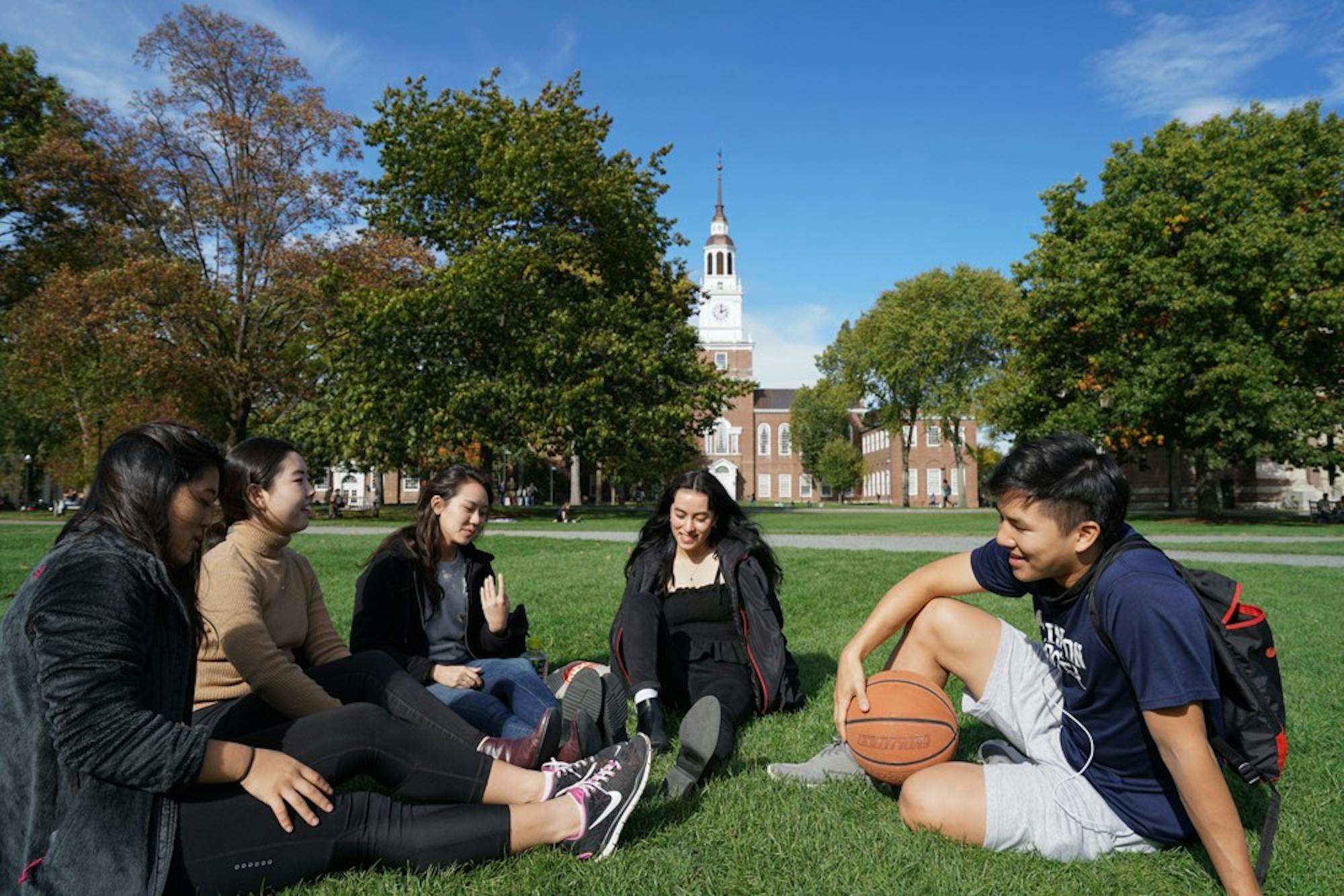The human experience is so strange.
I mean, our mere existence demands so much of us physically — to be fed and bathed, to exercise when we don’t want to or to layer when it is cold — though it doesn’t end there. Our minds have their own demands, too. They hunger for the experiences to learn and grow, and plague us with the existential: What am I doing with my life? Who am I? We must constantly reaffirm our own identity in this world and somehow find our footing amidst the chaos.
This may seem very abstract and philosophical, but these forces are readily at play at Dartmouth. Last term, my friend sent me a text saying, “I’m so tired of being known on this campus.” I remember understanding her so perfectly in that moment: No matter how hard we may try to remain anonymous, we are always someone’s friend, lab partner or ex, rather than simply our own person.
It seems to me that our social lives at Dartmouth exist within a spiderweb — delicate and interwoven. Meeting someone for the first time is often less about the novelty of the interaction and more about who we are in relation to others on the spiderweb. “Oh, you’re so and so’s friend, right?” become the first words that christen a new relationship with that person and suddenly our history becomes forever intertwined with this initial introduction. It feels like we have all decided on who everyone else is before they’ve even gotten the chance to introduce themselves.
Dartmouth operates in such a way that it is impossible to exist here without being known. We meet people on our First-Year Trip and on our freshman floor and in our classes and in frat basements, and slowly these people become our friends. As we continue to meet new people, this cycle repeats endlessly. Our school is so small that it is inevitable that our friends meet our other friends and form their own relationships. Sometimes we look back and realize that our connections have taken on a life of their own.
At its best, Dartmouth’s interconnected social web is incredible. After all, these are the people who accompany us in every aspect of our four years in Hanover. They’re the ones who accompany us on late nights spent both in the library and on the dance floor. They’re the people we live with — the ones who we go grocery shopping with and who care for us when we’re sick. Together we laugh and we cry and we fall in love and tend to broken hearts. We do it all with our people, and it’s nothing short of beautiful.
Yet it’s also tiring and overwhelming. True, genuine connection demands that we give much of ourselves to others, and sometimes we don’t have much left to give. There are some days when our academics and social life pummel us into the ground, and the last thing we want to do is be seen. Perhaps we’ve been avoiding someone for one reason or another and everything in us hopes to not run into them. But there’s just something about Dartmouth that almost guarantees that we will run into someone we know — or, worse yet, we’ll see the one person we’ve painstakingly tried to avoid. We lose not only our anonymity, but also our autonomy to exist as an individual.
The maintenance of these social connections can be stifling and perhaps a direct attack on our personal freedom. It’s a system that grows increasingly complex as we grow older and our lives continue bumping into others. There will be moments when we realize this burden — this true cost — of living, loving and finding ourselves in this world. These are moments of tragedy, of loss and unrequited love, when there is a deep realization that it is impossible to come out unscathed. That pain is a price that we often must pay to have loved.
But there’s a beauty to it — this process of knowing others and being known by them. Talk of private and public tension, or the loss of one’s anonymity or any other philosophical debate seem to fade away when times become challenging. We realize that it is better to have felt all of the emotions we may have felt, for it is proof that we have loved.
Perhaps our one consolation in this world is that our lives were never meant to be lived alone. While it may come with the perceived loss of our autonomy, I can’t help but feel that ultimately it is a privilege to know and love others — and in turn be known and loved.




